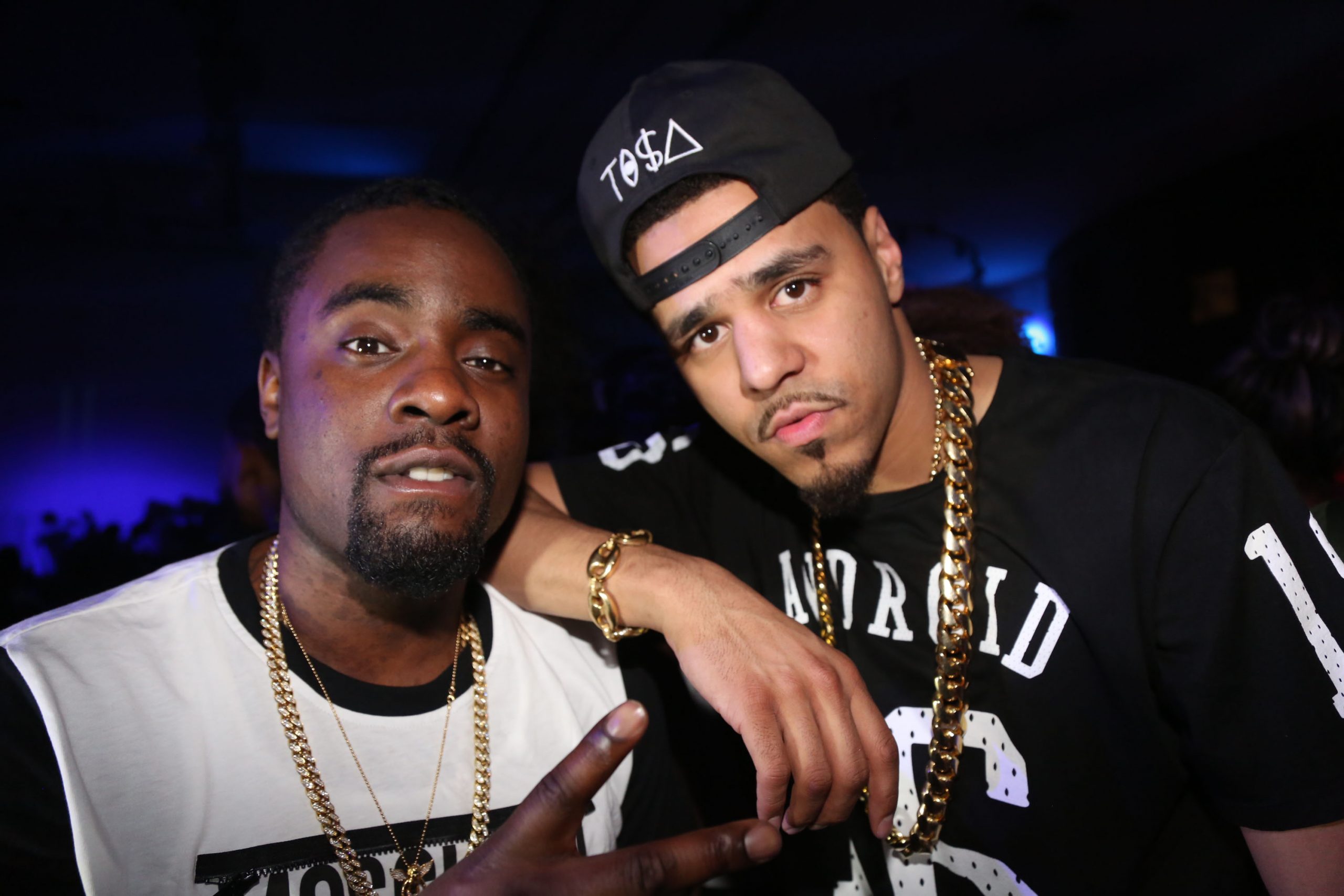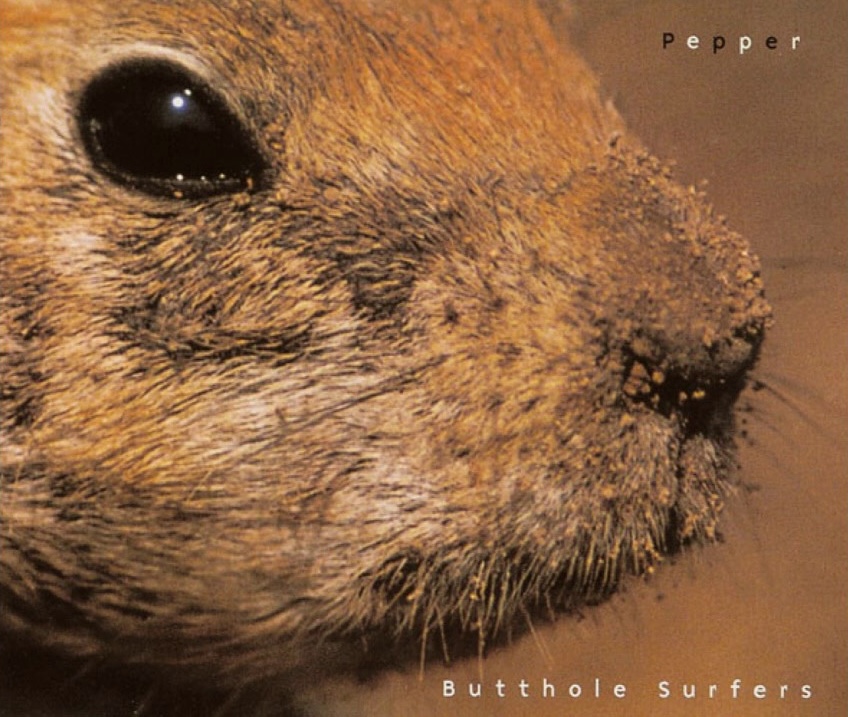Talk shit. That's it. That's the best thing you can do. If you're trying to sell a rap album to people in the 21st century, there are plenty of things that could work, but there's one that's succeeded above all others, and that's talking all the shit that you can talk. Jay-Z's The Blueprint had plenty of hits, and it's a pivotal record in the man's career and arguably in the history of rap itself. But when the album was about to come out, all anyone could talk about was Jay savaging Nas and Mobb Deep on "Takeover." The same thing happened when Nas was getting ready to release Stillmatic: He released "Ether," and "Ether" dominated the conversation. A couple of years later, 50 Cent built an entire empire on shit-talking. (That same shit-talking probably hastened the crumbling of his empire a few years later, but that's a story for a different time.)
Right now, J. Cole is at a crossroads. He came to fame being the relatable rapper, the guy next door, the one who raps about people's everyday lives. But people's everyday lives no longer have anything to do with everyday life as Cole himself presumably lives it. Cole is now one of the three or four most popular rappers on the planet. As he's getting ready to release the new 4 Your Eyez Only later this week, he has to find some way to acknowledge that relatively new reality. He can't adapt the same humility that brought him all that adulation. He has to do something else. So he's talking shit.
[videoembed size="full_width" alignment="center"][/videoembed]
"False Prophets," the song that Cole halfassed released in a documentary short to help hype up his new album's release, is Cole's aw-shucks, eyes-downcast version of "Takeover." On two successive verses, Cole calls out his peers in rap, blasting them for losing their way and getting caught up in their own bullshit. The first verse concerns an old rap star who's "falling apart," who puts his "ego in charge of every move," and who was once Cole's "hero, maybe." Cole never mentions that old hero, and I've seen people arguing online that it could be Lil Wayne or Drake or Diddy or some composite of out-of-touch rap stars. But no. It's Kanye West.
Cole's whole performed-humility style is a sort of facile read on what West was doing when he made College Dropout; Cole himself is basically the fan who never got over wanting the "old Kanye." And Cole has certainly had his run-ins with West. He and West share the same kinda-mentor in Jay Z. They share a management company and a Tidal co-ownership stake. At the now-infamous press conference that launched Tidal, Jay stood in between Cole and West, and in the photos from the event, he now looks like something of a human buffer. Much earlier in his career, Cole rapped on the G.O.O.D. Fridays track "Looking For Trouble." A few years later, Cole released his sophomore album Born Sinner on the same day that West released Yeezus. That first week, Yeezus sold 30,000 more copies than Born Sinner. In the long run, though, their numbers have been about the same, with Cole's reassuring and middling album lingering in the charts much longer than West's challenging and great one.
It strikes me as deeply shitty that Cole would finally directly call out West a few days after West was released from the hospital where he was under psychiatric care. West is exactly the type who would be set off by this kind of attack from a younger peer, and that's probably not something he needs in his life right now. For Cole to go after his onetime "hero, maybe" at his lowest moment strikes me as a particularly craven shit-talking attention-grab. Maybe he didn't plan it that way. Hell, maybe he wasn't even talking about West in the first place. But it was a canny move. Cole isn't a genius, and he isn't crazy, either. He knows exactly what he's doing.
I expect West will have some shit to say about J. Cole eventually, but that's a developing story. It'll be a while, I imagine, especially if West heeds the advice of the people around him and manages not to get baited into some shit. But Wale was always going to come back at Cole. Wale is widely believed to be the subject of the second verse of "False Prophets," Cole's rapper friend who "wanna win bad." Here's how Cole describes that unnamed rapper: "Every time I see him, he stressing / Talking about niggas don't fuck with him, the shit is depressing / And I know he so bitter he can't see his own blessings." It's not an attack, exactly. Cole shows some level of empathy. But the contrast is implicit. In the "False Prophets" video, Cole ambles around a city street, pounding home the idea that he is a grounded and connected and everyday person. His friend isn't. Cole is dissing without explicitly dissing.
On the nearly immediate response track "Groundhog Day," Wale names Cole directly, makes reference to a bunch of Cole songs, and somehow avoids losing his mind on Cole. He, in essence, admits that Cole is right: "It hit home cuz there's some truth, this I know / This ace I go, I get psycho when shit get dark." Then, later: "I'm on my way to Raleigh, so grateful for that inspiration. I'll see you at the game, bro." And then, shortly afterward, Wale posted a video of himself at a basketball game with Cole.
"See you at the game, Bro" pic.twitter.com/jgzxQ85uA5
— Wale (@Wale) December 3, 2016
It seems like it worked, too, since Wale sounds newly focused on "Groundhog Day" and on "Folarin Like," his new freestyle. It's nice, you know? These guys discussed things publicly, through song, and stayed close. But I can't get over how disingenuous and weird it was for Cole to use his friend to make a point, and to elevate himself. He could've had that conversation with Wale in private, and he instead went to the rap blogs and dunked on his friend. Not that it's my job to render judgement on his actions, but it doesn't sit right with me. Another thing that doesn't sit right for me is something Cole says on his other new shit-talk fest "Everybody Dies": "The streets don't fuck with you, you Pitchfork rappers / Chosen by the white man, you hip-stor rappers."
[videoembed size="full_width" alignment="center"][/videoembed]
I know what Cole's talking about, of course. I spent seven years writing for Pitchfork, and much of it was about rap. (And I'm whiter than a motherfuck.) When I started, in 2004, the site barely ever covered non-backpack rap. I was part of a wave of critics who took different ideas of rap seriously, who wrote laudatory things about Clipse and Cam'ron and Young Jeezy and Beanie Sigel and Lil Wayne. (I also happen to be the writer who gave Cole his best-ever Pitchfork review, a 7.3 for the 2010 mixtape Friday Night Lights.) I can remember going to the 2005 Intonation Festival, Pitchfork's first fest (which had no rappers on the bill), and looking at the line wrapped all the way around the fence of the park to get in, wondering aloud that most of the people in that line probably hated my rap reviews. It felt, at the time, like an uphill climb, getting the indie rock establishment to take seriously this music that we loved. It wasn't about "choosing" rappers. It was about expressing enthusiasm for music that we loved. Or that was how I felt, anyway. Maybe it would've felt differently to one of the rappers who wasn't chosen.
The phenomenon of the "Pitchfork rapper" -- the rapper beloved by the doofy white dorks who would read or write for a site like Pitchfork or Stereogum -- is one I've encountered a whole lot over the years. It doesn't exactly have a fixed definition. At various points, I've seen people talk about Clipse or Cam or Wayne as Pitchfork rappers, and you'd be hard-pressed to find any rappers whose mid-'00s work is as universally beloved as what those guys were doing. Once upon a time, Wale could've been a Pitchfork rapper, too; his 2008 Mixtape About Nothing was the sort of thing that got way more burn from dorky critics than from the public at large. But then Wale got popular, made some music even cornier than The Mixtape About Nothing, and developed a relationship with critics that led to moments like this.
But who's a Pitchfork rapper now? What could that even mean? That site, like this one, has not had a lot of nice things to say about Cole over the years. But the rappers who are now getting the most love on sites like these are people who also have massive, wide-ranging fanbases, people who the streets do fuck with: Kendrick Lamar, Chance The Rapper, the revived Tribe Called Quest, Cole's possible new nemesis Kanye West. Are these people Pitchfork rappers? Is he talking about 21 Savage or Danny Brown or Kevin Gates? Vince Staples? Earl Sweatshirt? Run The Jewels? Noname? Like, fucking, Ka? I went to this year's Pitchfork festival, and the only rappers on the bill were Mick Jenkins and the reunited Digable Planets. I bet J. Cole loves Mick Jenkins; he's practically a post-Cole rapper. Nobody's going to step forward and clap back at Cole for this one, mostly because nobody's going to want to be thought of as a Pitchfork rapper. But I'd love to know who Cole's thinking about with that line. I'd love to know whether he even has a target, or whether he's just bringing up antiquated internet-rap gripes to make himself look good.
After all, Cole has to be the underdog. It's baked into his identity. So now that he's essentially won, he's still doing everything he can to make it look like he's still fighting from underneath. He's like Donald Trump, running campaign events after the election because he loved campaigning and doesn't give a fuck about governing. And, just like Trump, Cole knows how to get attention. He knows how to talk shit.
FURIOUS FIVE
1. Ashanti - "Helpless" (Feat. Ja Rule)
Look: I realize I am cheating here. This is not a rap song. It's an R&B rendition of a showtune, with a Ja Rule verse on it. I should think this is lame as fuck, and I should not put it on this list. But good lord, what a beautiful song, what an absolute blast of joy. I hated the Murder Inc. era, and now I'm finding myself absolutely wrecked by nostalgia for it. I think that means this is a great song.
2. Young M.A - "Eat"
Wherein 2016's most vital new rap voice, a woman loved and hated in equal measures, hijacks Nas' iconic "Hate Me Now" instrumental and spends six minutes talking wild shit. Beautiful. Between this and Wale's "Folarin Like," we could be going through a full-on I Am... renaissance, and I am ready for it.
[videoembed size="full_width" alignment="center"][/videoembed]
3. Run The Jewels - "Legend Has It"
One day, maybe I'll get to the point where this duo's whole cinematic industrial-rap tag-team thing, that malfunctioning-goon-robot sound, will not want to make me drop a moonsault from my rooftop onto my neighbor's car. But we are not there yet.
[videoembed size="full_width" alignment="center"][/videoembed]
4. The Lox - "What Else You Need To Know"
The members of New York's gulliest, most grizzled rap group sit you down and tell you their life story. At first, you only sit there because you're nervous and you don't want to offend them by getting up. But then you get sucked into the story.
5. Kodak Black - "There He Go"
This isn't Kodak operating at his hypnotic full strength, but he did just get out of jail, so give him some time. I'm hoping that his South Carolina trial is based on nothing and that he'll finally have time to get back into what was a tremendously exciting rap career. And if we do learn that he's guilty of what he's accused of, I'm ready to cut him off.
[videoembed size="full_width" alignment="center"][/videoembed]
IT WAS ALL GOOD JUST A WEEK AGO
these feel like the times that little girl was talking about at the beginning of liquid swords
— Open Mike Eagle (@Mike_Eagle) December 1, 2016






